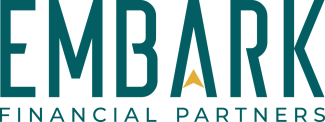
10 Questions to Ask Yourself That Help Set Financial Goals and Values
#Vision
Asking yourself questions is a powerful self-reflection tool as it allows you to understand and chart the values and things most important to you. It is no different when it comes to our financial lives. Here are 10 questions you can ask to explore those financial values.
| What Are My Strongest Feelings Associated with Finances?
When you hear the word “money” or “finances,” what feeling comes to mind? Common feelings include worry, anxiousness, nervousness, confidence, or indifference. Whatever emotion it may be, they often start taking shape from an early age and impact our decision making today. This makes recognizing these behaviors and emotions key. Understanding them can set the landscape for how to approach your financial goals.
| Do I have an Emergency Fund in Place?
Asking this question is a great starting point of assessing your ability to meet immediate expenses. An emergency fund provides immediate, short-term funds to cover unexpected expenses from a sudden life change. A good rule of thumb is to have 3-6 month’s worth of your fixed expenses (rent, car payment, medical insurance, food, etc.), depending on the variability of your income, set aside. Having the ability to meet immediate expenses then empowers you to progress on organizing your other financial goals.
| What Financial Risks Threaten My Goals?
Financial risks can include personal liability, premature death, disability, healthcare, and long-term care. The risks to protect can vary from person to person and often depend on life stage. For example, the risks a retiree faces may be more healthcare related whereas the young professional who is recently married may be concerned with a premature death or disability that takes away future income potential for a spouse or dependents. Any of these risks can be measured so you can take stock of the risk and make an intelligent decision whether to accept the risk or mitigate with appropriate insurance protection.
| Do I Have a Bucket List?
If you do not have a bucket list, I encourage you to create one. The bucket list can be short or long and filled with either experiences and/or places. These desired life experiences often require some sort of financial commitment. Because of the financial commitment, the bucket list gives ideas of how to work towards and allocate financial resources towards marking off those experiences or places.
| How Do I Want to Make an Impact with People or Causes in My Community?
The impact in the community can be non-financial with time, financial with money, or the combination of both time and money. If you have a cause or organization that is important to you, option three of both time and money applies most frequently. When time and money are sown, a sense of purpose is provided. That sense of purpose can then drum up ideas of how to dedicate financial assets efficiently in the present and in the future.
| Do I Have a Major Purchase Anticipated in the Next 5 Years?
After answering the simple yes or no here, it’s where the strategy of goal achievement for this major purchase can be pursued. If the answer is yes, it can involve things such as a house, car, extended international trip, or business investment. When you have one of these purchase on the horizon, it’s vital to develop a plan of paying for the purchase that aligns with values on cash and financing. When financing is involved, understand good debt vs. bad debt and your cash flow to make payments. If the answer to the above question is no, proceed with prioritizing your longer-term financial goals.
| What Are My Quality-of-Life Desires?
Quality-of-life desires start after satisfying basic physiological and safety needs. Quality-of-life desires are those items, experiences, and luxuries you like to enjoy on a daily, monthly, or yearly basis with your extra cash. To ensure other goals and parts of your financial journey are not compromised, it’s important the quality-of-life desires are set in context of your income. A balance can be struck with quality-of-life desires and long-term financial goals through prioritization and planning.
| What Are My Personal and Professional Goals?
Listing your personal and professional goals can be a valuable exercise because knowing them plays a role in guiding your financial choices. Personal goals shape what we own, where we live, size of family amongst many others. Professional goals shape career trajectory, company, job position, professional designation, and other facets of your professional life.
| How Do I Envision Retirement?
When you envision retirement, what lifestyle comes to mind? Is it close to family? On a beach? In the mountains? Living overseas? Whatever you envision for retirement, having a mental picture or physical picture of this retirement goal can provide the motivation to save and work towards this goal. Saving and working towards the goal should be paired with a defined strategy that can developed with your financial professional.
| Do I Want to Leave a Financial Legacy to Children or Charity?
Like some of these questions after answering yes or no, this question has further questions or thoughts to reach the desired answer for you. First, it’s important to understand assets remaining at end of life go three places. Those three places are the family or people you care about, the causes or charities you care about, or the government. After identifying where you want those assets to go, allocate them according to what’s most important to you. Assets can be left to heirs to create multi-generational wealth. Assets can be used to enjoy your life. Assets can be gifted so you can see heirs utilizing them while alive.
Not all these questions may resonate with you. However, one question, a few of them or all of them may have sparked ideas to set a trajectory of having your financial life align and support your goals and values. If any of these questions have, an Embark Financial Partners Wealth Advisor like myself wants to continue that discussion with you.
The opinions voiced in this material are for general information only and are not intended to provide specific advice or recommendations for any individual.

